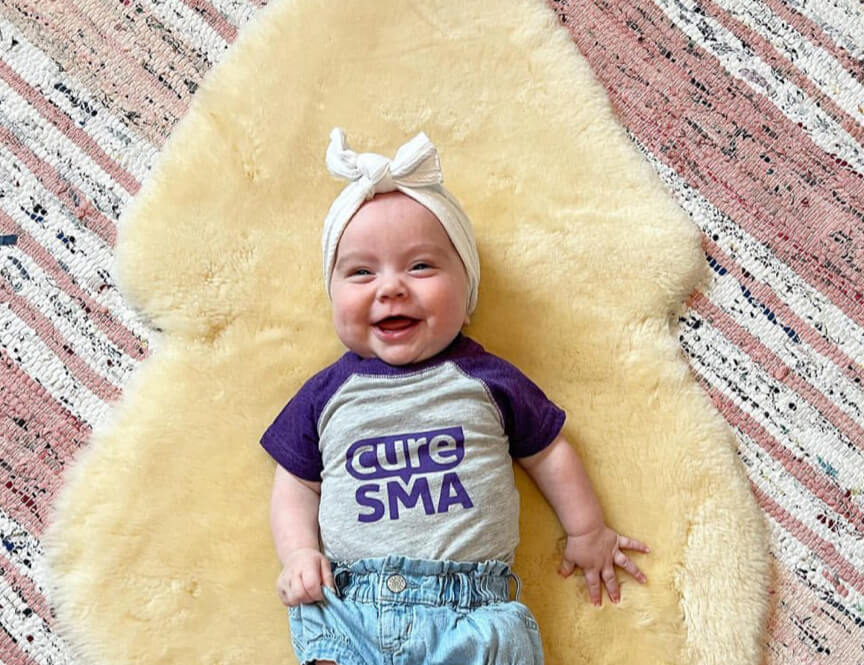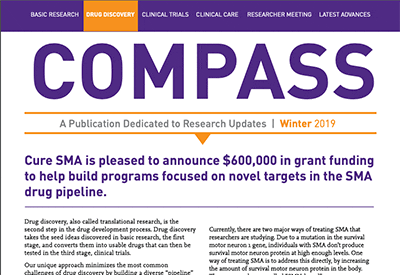AveXis, Inc., a clinical-stage gene therapy company developing treatments for patients suffering from rare and life-threatening neurological genetic diseases, today announced that the planned pivotal study of AVXS-101 in spinal muscular atrophy (SMA) Type 1 will reflect a single-arm design, using natural history of the disease as a comparator, and enroll approximately 20 patients. This update is based on the receipt of the minutes following the Type B meeting with the U.S. Food and Drug Administration (FDA) held on September 30, 2016.
In addition to evaluating safety, the planned program is expected to evaluate achievement of motor milestones, specifically patients’ ability to sit unassisted, as well as an efficacy measure defined by the time from birth to an “event,” defined as death or requiring at least 16 hours per day of ventilation support for breathing for greater than two weeks in the absence of an acute reversible illness, or perioperatively.
At the Type B meeting and in the meeting minutes, the FDA acknowledged the company’s rationale for a single-arm pivotal study and provided a number of constructive suggestions to help optimize such a trial design. The FDA also indicated its preference for a design with co-primary endpoints consisting of a measure of developmental milestone achievement (such as sitting unassisted) along with a clinically meaningful measure of survival (such as time to an “event” as described above). Based on FDA’s suggestions as well as other expert input, AveXis continues to evaluate a number of the details of the trial design. More specific information will be made available at the time the study is initiated, which is expected in the first half of 2017.
“We believe the Type B meeting had a positive tone, with FDA offering a number of constructive suggestions which we believe will better enable implementation of a pivotal study design that is most appropriate for the patients suffering from this devastating disease,” said Sean Nolan, President and Chief Executive Officer of AveXis. “With the feedback needed from the FDA to move forward with our pivotal trial, we plan to proceed as expeditiously as possible to begin the study in the first half of 2017.”
With regard to the ongoing Phase 1 trial of AVXS-101, the FDA stated the following in the meeting minutes: “We strongly recommend that at the completion of the study, you request an end-of-Phase 1 meeting to evaluate the adequacy of data to support future product development, including a discussion of whether the data from the Phase 1 study might provide the substantial evidence necessary to support a marketing application.”
The company’s strategy with the SMA Type 1 program is to complete the ongoing Phase 1 trial and, in parallel, execute on the single-arm pivotal trial, while continuing collaborative discussions with the FDA regarding the most expeditious pathways for FDA approval of AVXS-101.
Cure SMA Funds Multiple Gene Therapy Approaches
Beginning in 2010, Cure SMA made a series of grants to Nationwide Children’s Hospital to study gene therapy, also called gene transfer. Spinal muscular atrophy (SMA) is caused by a mutation in the survival motor neuron 1 gene (SMN1). Because of this mutation, the individual does not produce enough survival motor neuron (SMN) protein.
Gene transfer may increase SMN levels by using a virus, called a vector, to deliver the SMN1 gene to affected cells. Dr. Brian Kaspar and Dr. Mendell discovered that Adeno-associated virus serotype 9 (AAV9) had the unique ability to cross the blood brain barrier and the Blood-Cerebrospinal Fluid Barrier (CSF).
Currently, two approaches are being studied: an injection into a vein, known as systemic delivery, which is the process being tested in this current trial, and delivery directly into the cerebrospinal spinal fluid (CSF), a process known as CSF-delivered gene therapy. CSF-delivered gene therapy has shown promise for reducing the amount of drug required for larger and older patients. This could eventually make the treatment accessible to a wider population.
In total, Cure SMA has granted $845,000 for gene therapy, including support for both the systemic program and the CSF program. Using the data generated with our funding for CSF delivery, Dr. Kaspar and his team were able to secure a $4 million grant from NINDS in 2013, to develop this delivery approach for human clinical trials in SMA.



